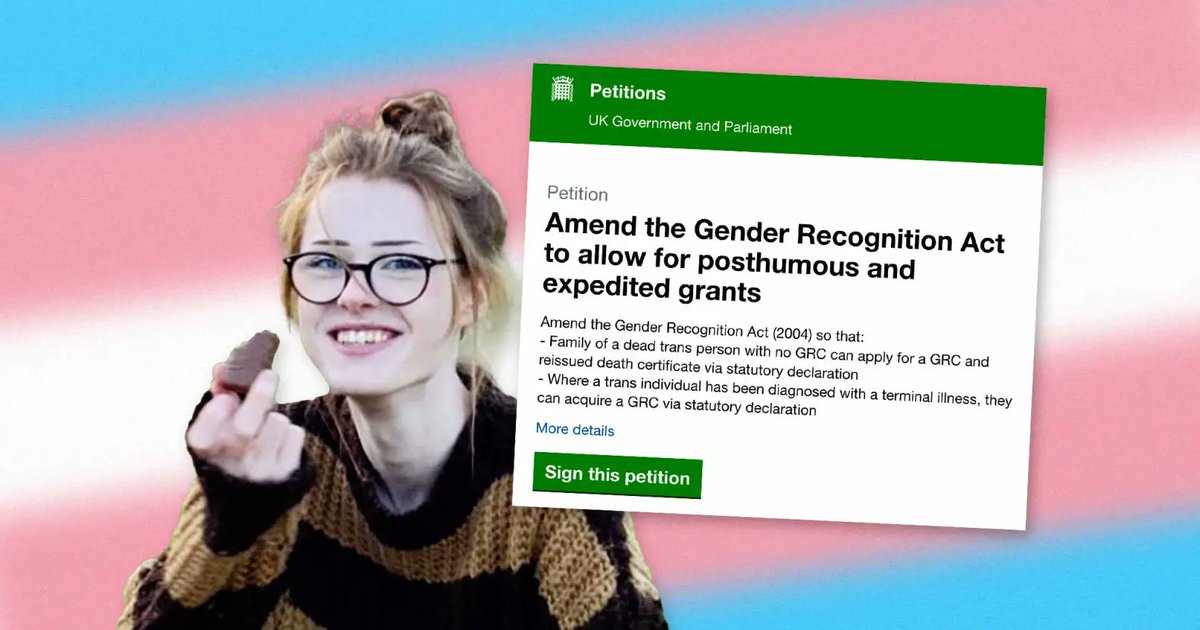
A petition calling for posthumous changes to the Gender Recognition Act, launched following the death of Brianna Ghey and to respect trans people after they die, has been rejected by the government. 🧵 (1/7) 

After Brianna Ghey, a 16-year-old trans girl, was stabbed to death in a park in Warrington on 11 February, campaigners wanted Brianna Ghey to be given a Gender Recognition Certificate (GRC) so her death certificate reflects her true gender. (2/7)
Under UK law, only those aged 18 and over are able to obtain a GRC, which allows a trans person’s gender to be recorded on birth, death, marriage and civil partnership certificates. (3/7)
A campaign with the hashtag #DignityForBrianna was started, with the goal of obtaining Ghey a posthumous GRC.
Despite a petition reaching more than 13,000 signatures, the UK government has rejected any possibility of change to the GRC. (4/7)
Despite a petition reaching more than 13,000 signatures, the UK government has rejected any possibility of change to the GRC. (4/7)
“As announced in 2020, we believe the Gender Recognition Act 2004 is effective, strikes the right balance and allows for those who wish to legally change their sex. “We have no plans to change it.” (5/7)
Despite trans violence and discrimination on the rise all over the UK and around the world, the Tory government fails to address the topic of posthumous identification in its lengthy response. (6/7)
Brianna’s funeral was held on Wednesday (16 March), where mourners wore pink and her family paid respects to the “‘prettiest, most perfect girl.” (7/7)
thepinknews.com/2023/03/15/bri…
thepinknews.com/2023/03/15/bri…
Read more:
thepinknews.com/2023/03/16/uk-…
thepinknews.com/2023/03/16/uk-…
For more daily LGBTQ+ News and content, subscribe to our newsletter! pinknews.co.uk/pinknews-newsl… 

• • •
Missing some Tweet in this thread? You can try to
force a refresh











